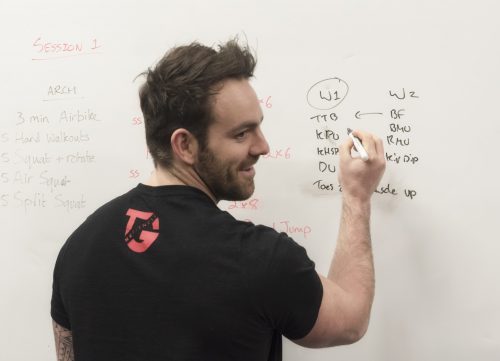Become an Authentic Tour Guide
As an Expert Youth Strength Coach in Berkshire, I thought it would only be fair to share my philosophy. It is important to note that my philosophy is continually evolving. So, these are my thoughts and beliefs at the time of writing. They may well change and develop as I evolve as a coach. However I thought it may be interesting to share.
A tour guide serves multiple functions; they will select a route and provide detailed information. However, an authentic tour guide will provide an individualised experience. This allows the tourists to contribute to their sense of identity and enhance the trip. In order to do this, a guide must draw on knowledge from other disciplines and their own personal experiences.
To me, a strength and conditioning coach must mirror many of these points. Whilst it is my responsibility to provide a safe and structured experience, I must allow for individual differences and allow self discovery. A number of different experiences and influences have led to the development of this philosophy.
Building Trust and Rapport In Athlete Development
In order to see success, a strong relationship and understanding of trust must be developed. I believe this is essential between all member of support staff and parents / guardians, in addition to the athlete. As a result, I will always be honest and clear in my rationale, whilst remaining open to the needs of others. Whilst I may specialise in my field, it is important to remember that strength and conditioning is only a small cog in a much larger machine. For me, showing an interest and understanding of other practices goes a long way to building a good rapport with technical & tactical staff, along with teachers, parents and the whole support team.
Additionally, while trust is a two-way street, I feel it is myself as a coach who needs to lead the way. After all, I am there to support and develop the athlete, not the other way around. I will never ask an athlete to do something I have not experienced in some way, or something they do not feel safe doing. I may ask them to perform activities that surpass my athletic capabilities, however, I will do my best to ensure that I have experienced a similar level of challenge and difficulty in my own training.
For Long Term Athletic Development, the Basics are Key
Doing the basics well is something I feel strongly about. If you cannot walk, you are going to struggle to run. When I was younger, I remember hearing England Rugby Union legend, Jonny Wilkinson, talk about how he spent hours on end practising his kicking, passing and tackling. Being one of my idols at the time, this struck a chord with me. If I wanted to be any good at anything, I needed to get the basics right from the start.
This was strengthened further as I discovered CrossFit. During their Level 1 seminar, they discuss how to progress from basic mechanics and performing consistently before adding intensity. When it comes to coaching, particularly youth populations, I consider it crucial to ensure all athletes have a good ability to perform basic motor patterns. I believe all athletes, regardless of their sport, should be able to efficiently squat, lunge, jump & land, hip hinge and push & pull with the upper body.
